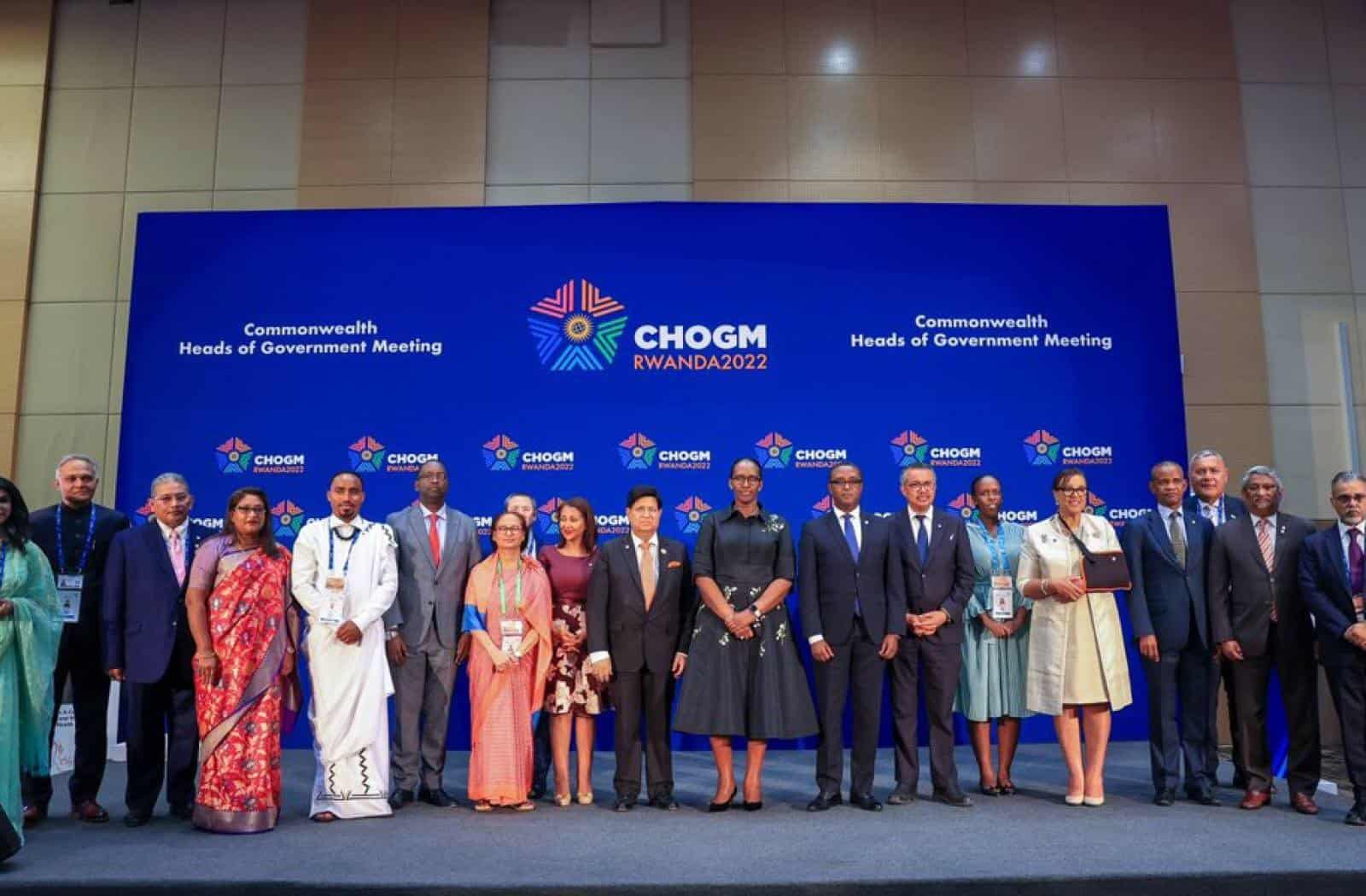Commonwealth foreign ministers have met in-person for the first time in almost three years in Kigali, Rwanda, ahead of the Commonwealth Heads of Government Meeting on Saturday.
They considered multifaceted issues relating to sustainable and inclusive development such as climate change, the environment and oceans, sustainable energy, youth and innovation. Ministers discussed how member states should address these complex issues, with a special focus on the needs of small states and least developed countries.
In her opening remarks, the Commonwealth Secretary-General, The Rt Hon. Patricia Scotland QC, said: “In a changing world, we need unity and purpose, drawn deep from the wells of Commonwealth history, values and potential, to achieve our shared goals and realise our potential.”
Scotland was re-elected to the Secretary General’s role.
Gender-based violence
HRH the Duchess of Cornwall joined the Commonwealth Secretariat and The NO MORE Foundation by launching new guidelines to help reduce violence against women and girls in the 54 Commonwealth member countries.
Speaking at the event, the Duchess said: “Whether we are aware of it or not, we all know someone who has endured sexual or domestic abuse. We can therefore all be part of combating these heinous acts.”
The impact of the global pandemic on women and girls trapped in their homes is evident in the high-incidence calls to domestic violence helplines that increased up to 500% across Commonwealth countries during the pandemic, a statement said. The strategy urges more consistent and effective collaboration between governments, civil society and the private sector.
Global health
As countries around the world continue to recover from the deep impacts of the COVID-19 pandemic, Ministers examined the severe consequences of the pandemic on public health systems, trade, and connectivity, and how governments can build back better systems capable of handling future crises.
Ministers heard how the Commonwealth can strengthen health security and resilience, support trading systems and small states, and harness other opportunities for a sustainable and inclusive post-COVID-19 recovery.
Commonwealth leaders also met to discuss the growing threat of antimicrobial resistance (AMR).
The event heard how AMR poses a serious threat to human, animal, plant and environmental health, as well as food safety and security. It “threatens to send us back to a time before antibiotics,” Dr Tedros said.
Birmingham 2022
In other news, Commonwealth Sports and Health Ministers, sports industry professionals and stakeholders from bodies like UNESCO, the Commonwealth Advisory Body on Sport (CABOS), the Olympic movement and FIFA came together for a roundtable breakfast where they heard about how the upcoming Commonwealth Games in Birmingham, UK, will help to produce better health and development outcomes globally.
Dr Suddhoo, Arjoon, Deputy Secretary-General, Office of the Secretary-General said: “Sport serves as a major catalyst for inclusive development for all 2.6 billion Commonwealth citizens, 60 % of whom are young people under the age of 30.”
“Beyond its convening power, sport is also an important tool for ensuring that the social and health gains made prior to the COVID-19 pandemic are restored and accelerated. This is what the upcoming Commonwealth Games in Birmingham, UK, represent.”
